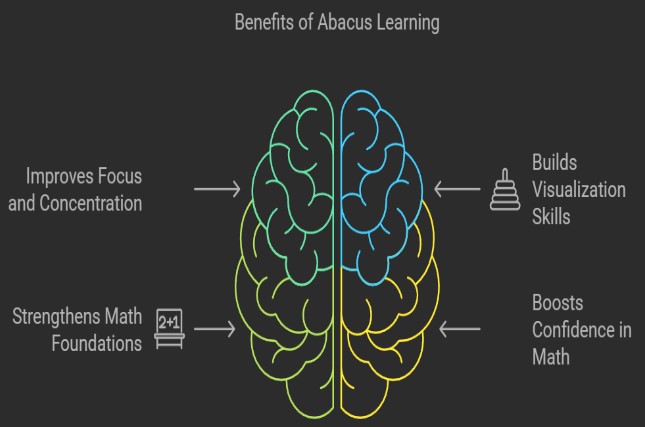
Have you heard of math anxiety? Does your child struggle with it? While some kids breeze through the subject, some may find it very daunting. Math anxiety is one of the problems associated with the subject, sometimes the problem can be as small as the lack of confidence or just the fear of failure. If you notice that your child seems to be falling behind in math, or trying to avoid it, don’t worry—there are ways to help them develop a positive relationship with the subject. Let’s discuss how you can help your child, from identifying the signs and understanding the causes to exploring strategies to help your child enjoy math.
The Importance of Math in Early Education
If you’ve been reading blogs like these before, by now you know that mathematics is more than just numbers. It helps cultivate important skills like logic, problem-solving, and critical thinking, foundational for academic success. If children struggle with math early on, they may feel discouraged, leading to a lifelong aversion to math and subjects that require quantitative skills. The key is to identify if your child is having trouble and to intervene in a way that is supportive, interactive, and fun.
Signs Your Child Is Not Able to Keep Up With Math

Not every child who dislikes math is necessarily falling behind. Here are a few signs that may indicate your child needs extra math support.
- Avoiding Homework: If your child frequently avoids or delays their math homework, they might be finding it particularly challenging.
- Negative Attitude Toward Math: A constant complaint about math or comments like “I’ll never be good at math” can be a sign of frustration and difficulty.
- Falling Grades: A noticeable dip in math grades compared to other subjects often points to underlying issues with understanding math concepts.
- Difficulty With Basic Concepts: Struggling with fundamental concepts like addition, subtraction, multiplication, or division may indicate that your child may be finding it difficult to keep up.
- Easily Frustrated: If your child becomes frustrated quickly when dealing with math, they may feel overwhelmed by the subject.
Your child may respond in various ways to their lack of interest in math. As parents and educators, we need to identify these signs early and take proactive steps to support our children and reignite their interest in the subject.
Why Do Children Start Disliking Math?
For many children, math becomes a source of stress rather than joy. Here are a few common reasons why children might begin to dislike math.
1. Lack of Practical Relatability: Children may not see how math applies to the real world, which can make the subject feel meaningless to them.
2. Limited Engaging Methods: Learning methods that aren’t interactive or engaging can make math feel boring or intimidating for children.
3. Complex Concepts Too Soon: If children are introduced to complex math concepts too early without a solid understanding of the basics, they may become discouraged.
4. Pressure to Perform: High expectations can create a sense of pressure that makes children anxious about making mistakes.
5. Negative Experiences: One bad experience, such as a failed test or a difficult concept, can influence how a child feels about math in the long term.
5 Tips to Help Your Child Enjoy Math

- Understand your child’s needs. One very important aspect that you should look into is your child’s preferred learning style. How does your child retain information? By writing it, singing it, or simply watching videos? Understanding your child’s learning style can make a huge difference in their math and overall academic journey. Learn more about VAK Learning Styles.
- Incorporate math into everyday activities like shopping, cooking, or playing games. Simple tasks like measuring ingredients or counting change can teach children math in a hands-on way.
- Interactive learning tools can make learning math fun and interesting. Use worksheets, visual aids, animations, and games to transform difficult math problems into enjoyable challenges for your child.
- Help your child develop a growth mindset toward math. Teach them that mistakes are part of learning, and celebrate small achievements to build confidence.
- Introducing Abacus Math to your child can be a game changer. Abacus math helps improve mental arithmetic skills, helping children to calculate quickly and accurately. It also encourages children to visualize numbers, making math feel less abstract and more tangible.
Abacus Math: A Holistic Approach to Math Anxiety

Many educators recommend abacus math programs as an introductory approach to help children build essential math skills with confidence. And that’s where UCMAS comes in.
An Introduction to UCMAS

UCMAS is a global leader in abacus math and after-school math programs. We offer a structured program to improve children’s mental math abilities. Established in 1993, UCMAS has helped millions of children worldwide boost their math skills, confidence, and academic performance.
Through the UCMAS abacus math program, children learn to perform complex calculations mentally, using visual and kinesthetic techniques that engage both sides of their brains. The UCMAS method promotes overall brain development, enhances concentration, and improves memory, setting children up for success in school and beyond. The structured nature of the UCMAS program also makes it easy for children to track their progress and celebrate their achievements, fostering a love for math.
If your child struggles with math, remember that it’s not an unbeatable challenge. Identifying the signs early and using engaging methods like abacus math can make a significant difference.
Your search for ‘Abacus Classes Near Me’ ends now!
Partner up with UCMAS to give your child a structured and enjoyable way to improve their math skills and academic performance. Request an info session now!






